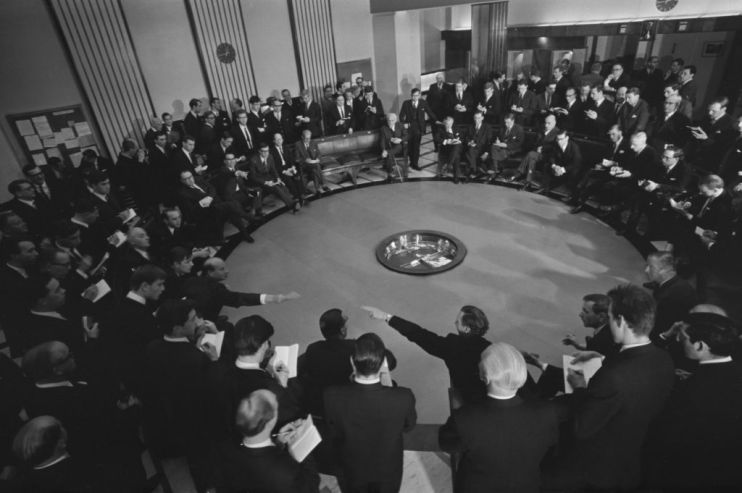The Ring couldn’t rule: Why the LME is smart to go digital

The London Metals Exchange (LME) proposal to shut its infamous ring may well have been accelerated by the pandemic, but the truth is that the end has been nigh for in-person commodities trading for sometime.
As the tectonic plates of the trading world have shifted to the computer screen in equity markets, metals traders have been hanging on to the use of hand signals to buy or sell precious metals by their fingertips.
Who can blame them? After all, is there anything more symbolic of the City’s relentless work ethic and meritocratic culture than the infamous “Ring”?
Read more: New skyscraper approved for the City in vote of confidence for the Square Mile
In this time of political change for the capital, some commodities trading stalwarts, many of whom have been at the beating heart of London’s global financial center for decades, will understandably fear the imminent death of what is the one of the last bastions of relationship-based trading. However, in the world of high finance, there is sadly no time for sentiment.
The cold hard truth is that not even the illustrious 144-year-old history of the pit can hold back the electronic trading tide. With continuous low volatility and declining volumes, traders face unprecedented pressures to close the gap between the big price swings in the physical metals and interlinked derivative markets.
This can only really be achieved through computer trading, as is that it is much easier to manage risk in these markets with every order on screen, in contrast to a human trading floor where there is ample room for misinterpretation of orders.
And let’s face it, the issue of risk has never been more prominent in commodity markets. In fact, one only has to go back to Q1 last year when the combined force of a Russia and Saudi Arabia oil dispute and the first wave of Covid-19 sparked the biggest global market sell-off since the financial crisis.
As whenever a significant bout of volatility sends prices spiraling all over the place, certain market participants always profit from the differences in prices across different markets. Usually, the aftermath of a highly turbulent period leads to the age-old debate about whether electronic trading is good or bad for markets.
But as a recent report by Greenwich Associates outlined, the shift towards of electronification of more markets, including commodities, has been driven be people preferring to transact based on prices quoted on a screen while working from home, rather than picking up the phone to negotiate with a human trader.
It is therefore not hard to see why, albeit with a heavy heart, the LME has finally been bitten by the computer bug. With the post-pandemic world, whenever that comes, looking like one of hybrid working, the old darling of Leadenhall Street has no choice but to move with the times.
Making the switch to electronic may be an understandably emotional move for some, but it is the most pragmatic way of ensuring that members are trading the fairest prices even during the most turbulent market conditions.
Read more: Running the rule over the world’s richest football clubs